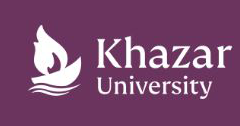Document Type
Original Study
Subject Areas
Language/Linguistics and Literature
Keywords
Literature; Arab Spring; Media Literacy; Terrorism; Democratic Governance, Global
Abstract
Three factors, specifically, slavery, Proselytization and Colonialism have influenced the History/ Archaeology and politics of Africa. The tripartite relationship established among the three factors influences the historical development of African politics. Difference in worldview between the West and third world countries has increased the phenomenon of global terrorism. The paper examines how literary texts in Africa and by Africans have recorded and responded to the political History/ Archaeology of the continent in relation with global democratic governance. African writers are therefore expected to project post colonial realities of global terrorism within the gamut of literature. On global terrorism, the paper raises the following questions: What constitutes terrorism and what is global terrorism in relation with media literacy? What are the strategies that can be put in place to check the menace of global terrorism? Terrorism is bifurcated into intra-continental and inter-continental types/forms with their peculiar implication for socio-political development in Africa. African writers should stop over-flogging colonial possession of Africa. They should rather focus on the social, national and continental History/ Archaeology of Africa for sustainable democratic governance on the continent. The hermeneutics of social and political events as reflected in the African literary texts, African and global media texts shows that African political problems are multidimensional. Our intention in this paper is therefore to discuss Literature and African experience, media and media literacy, media practices and social responsibility theory as well as ( African) politics, Arab Spring and terrorism.
How to Cite This Article
Sesan, Azeez Akinwumi
(2013)
"Literature, Global Terrorism, Politics and Media
Literacy in Africa,"
Khazar Journal of Humanities and Social Sciences: Vol. 16:
Iss.
4, Article 5.
DOI: DOI: 10.5782/2223-2621.2013.16.4.69
Available at:
https://kjhss.khazar.org/journal/vol16/iss4/5
Publication Date
2013

